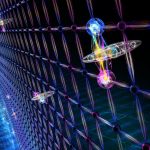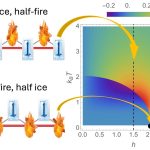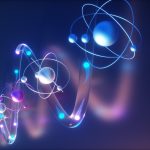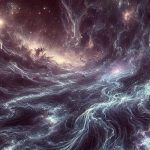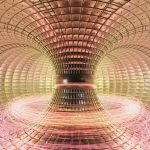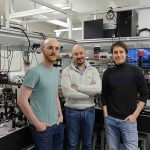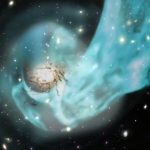Scientists create hot Schrödinger’s cat states without deep freezing
In an exciting new experiment, scientists in Innsbruck, Austria, have managed to create mysterious quantum states—known as Schrödinger cat states—without needing extremely cold conditions.
This...
New quantum computer sheds light on the secrets of the universe
Scientists have taken a big step toward understanding the tiny particles and forces that make up everything in the universe.
A team from the University...
Scientists discover strange new phase of matter: Half ice, half fire
Physicists at the U.S. Department of Energy’s Brookhaven National Laboratory have discovered a brand-new phase of matter in a magnetic material.
This unusual state, which...
Tiny silicon device could help connect quantum computers to the Internet
Quantum computers use special bits called qubits, which are often made from microwave photons—tiny particles of microwave energy.
These microwave qubits are useful because they...
A quantum leap: New device lets future quantum computers talk to each other
Quantum computers are powerful machines that could one day solve problems far beyond the abilities of today’s fastest supercomputers.
But for them to work on...
Cosmic dark energy may be weakening, astronomers say, raising questions about the fate of...
The universe has been expanding ever since the Big Bang almost 14 billion years ago, and astronomers believe a kind of invisible force called...
Scientists unlock real atomic behavior in lab-made quantum dots
In an exciting breakthrough, a team of scientists from Beijing Normal University, led by Professor Sun Qing-Feng and Professor He Lin, has achieved something...
Revolutionary light discovery could transform AI and computing forever
Scientists at Heriot-Watt University in Scotland have made an incredible discovery that could change the way we use light in technology.
By adding a new...
Scientists create powerful permanent magnet without expensive rare earth metals
A team of scientists in South Korea has developed a new way to make high-performance permanent magnets without using costly heavy rare earth elements.
This...
Galactic ‘Sloshing’: How cosmic collisions keep galaxy clusters hot
Scientists have finally solved a long-standing mystery: why do galaxy clusters stay hot?
Thanks to a new discovery from the XRISM satellite, researchers now know...


